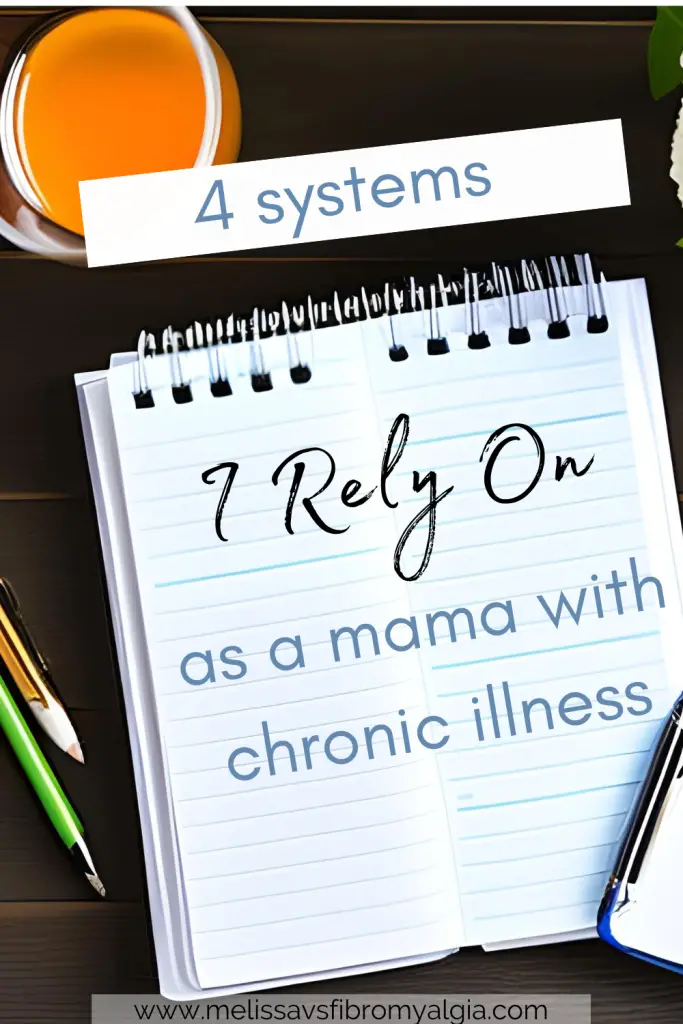People often say, “I don’t know how you do it.” or outright ask how I do it. Mostly I will reply that I don’t have a choice, the children are here, my health is what it is, life is busy. But here’s the thing, I’m a proactive, systems oriented person.
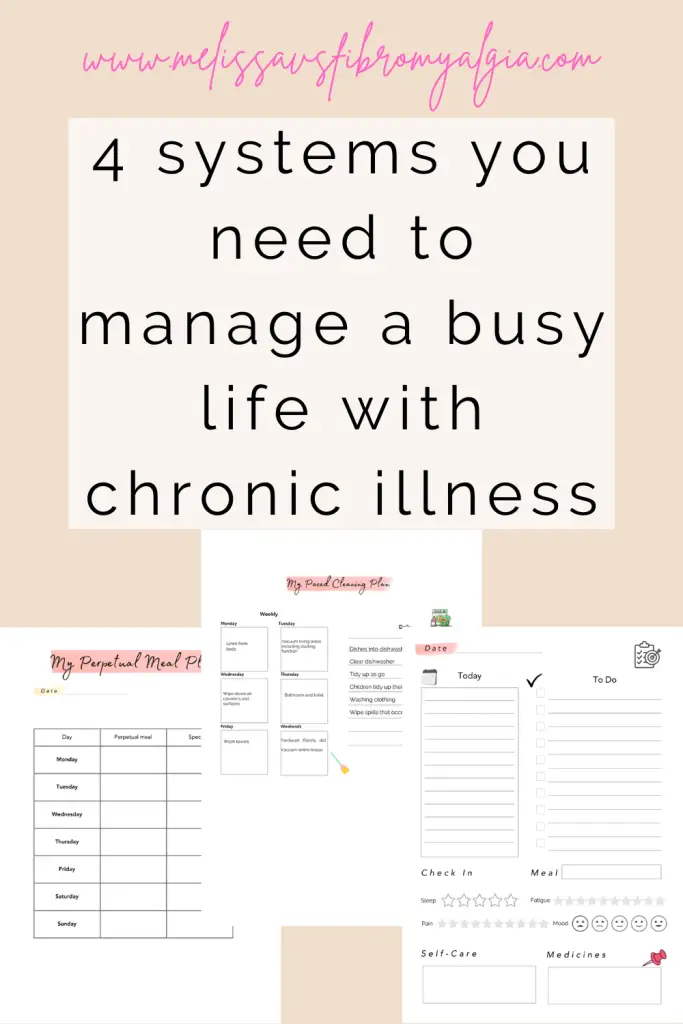
Today I’m spilling the beans on the super simple systems that help keep me organised with chronic illness.
When I give tips on anything, first know that I give it from lived experience and it is not prescriptive. I offer it in case it serves you in your own formulations. The second thing to know is that you must serve from as full a cup as you can get.
So the first recommendation/suggestion is always to focus on your own health.
The first system I recommend is tracking your own health metrics and working on your own health journey. Here’s my most recent post on what helps me most with my symptoms.
This is my newest symptom tracker/planner that makes being organised easy.
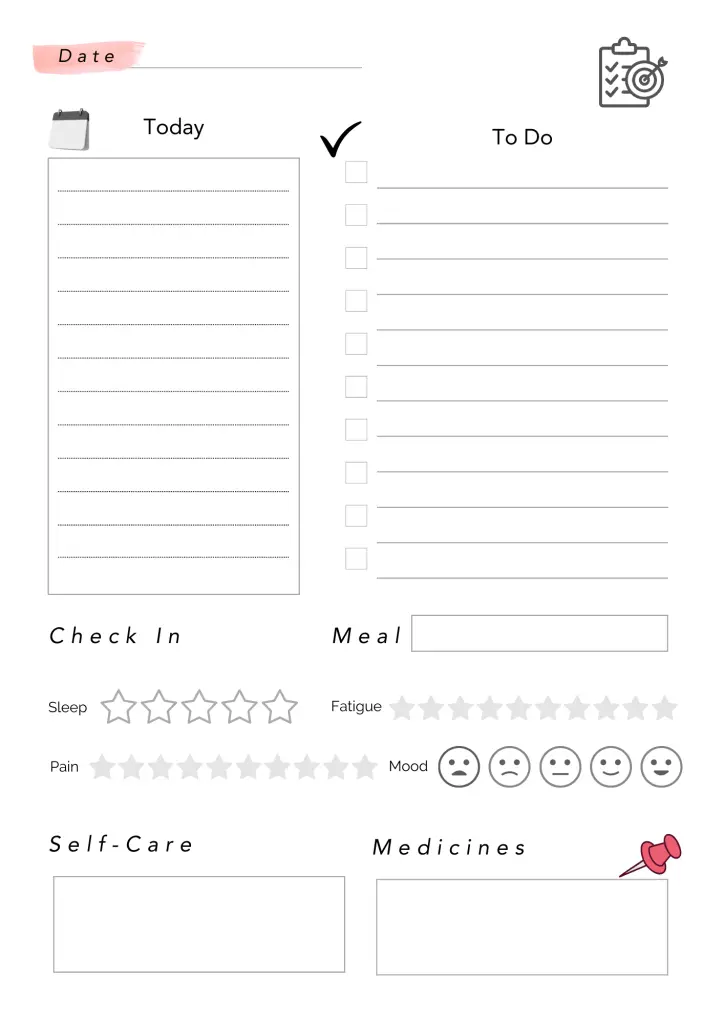
I also have a printed journal that combines symptom tracking with paced planning – I feel that it’s brilliant (lol) because it helps us to practically use the principles of pacing in our day and learn how to plan well.

However you do it, work on your own health and work to your (energy) strengths. The only way I manage four children, part-time work, a home, (as best a) life (as I can), and blogging etc. is by improving my health. I couldn’t do all these things when I was further back on my journey.
Being Organised with Chronic Illness
I am an avid planner and I need to be, brain fog does not lend itself to remembering all the things.
So I have tried many types of organisation schedules and charts. Currently I use Google calendar, which I share with my husband (we have a family calendar) and a family wall calendar (it has six spaces which is great for our big family!)
I also alternate between my Paced Planning Journal and My Foggy Brain To Dos. I keep running to do lists for my blog work and my life.
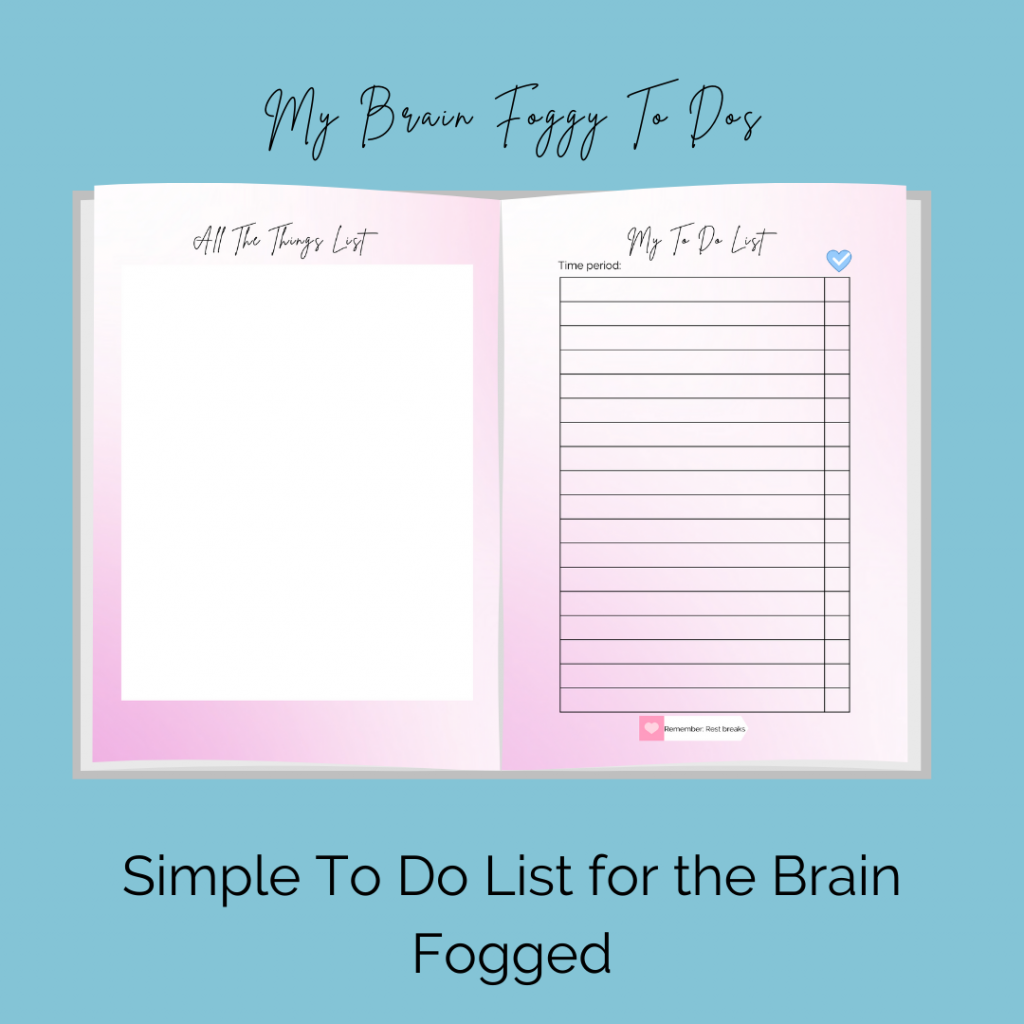
You really have to find what suits you and stick to it. It will be very personal. I love Google calendar because I can share notifications with my husband. And the reminders are very helpful. But I also love having stuff written down. Especially my daily to dos.
Tell us your favourite way to plan?

Perpetual Meal Plan
Do you also dislike meal planning and cooking? Or is it just the straw that breaks the camels back each day? Here’s how I try to make it easier.
A perpetual meal plan!
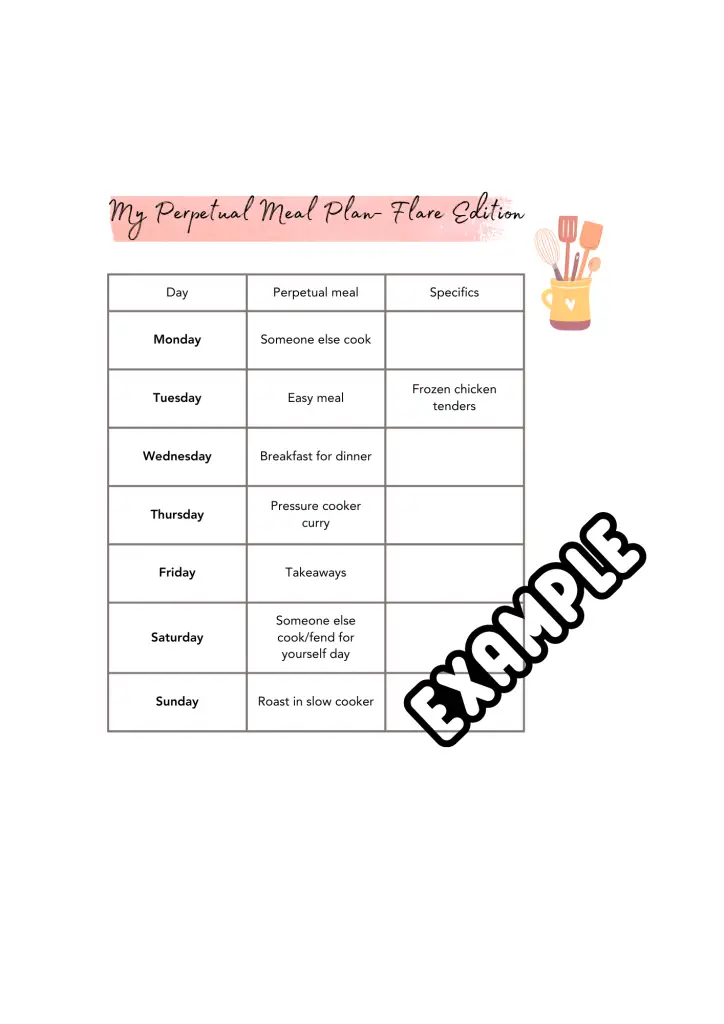
I offer the idea of having a set type of meal each week, giving yourself the flexibility to make it specific depending on specials, what’s in your freezer and what you feel like. If you’re happy with repetition, by all means, make a specific plan. But this seems to help me out of my meal planning funk. It limits the choices I need to make but gives me enough flexibility to make me happy.
There is much more I could say on this topic, so perhaps I will do a full blog post in future, let me know if that’s of interest. But my top tips include – double cooking (cook double and freeze or refrigerate for later), use the pressure cooker and slow cooker, keep it easy (I love Barker’s sauces, they have relatively clean ingredients and no gluten or dairy).
Paced Cleaning Plan
The only way to really tackle cleaning is to approach it in an organised manner. You just can’t keep on top of all the tasks any other way. I suggest keeping a list of daily must dos, weekly tasks (broken down into manageable chunks, according to your schedule) and assign monthly/seasonal tasks across the week mindfully. Don’t forget to give tasks to other members of the household, especially the ones that flare you up. And break up the more exhausting tasks. I never change the linen on all the beds at once (we have six!).
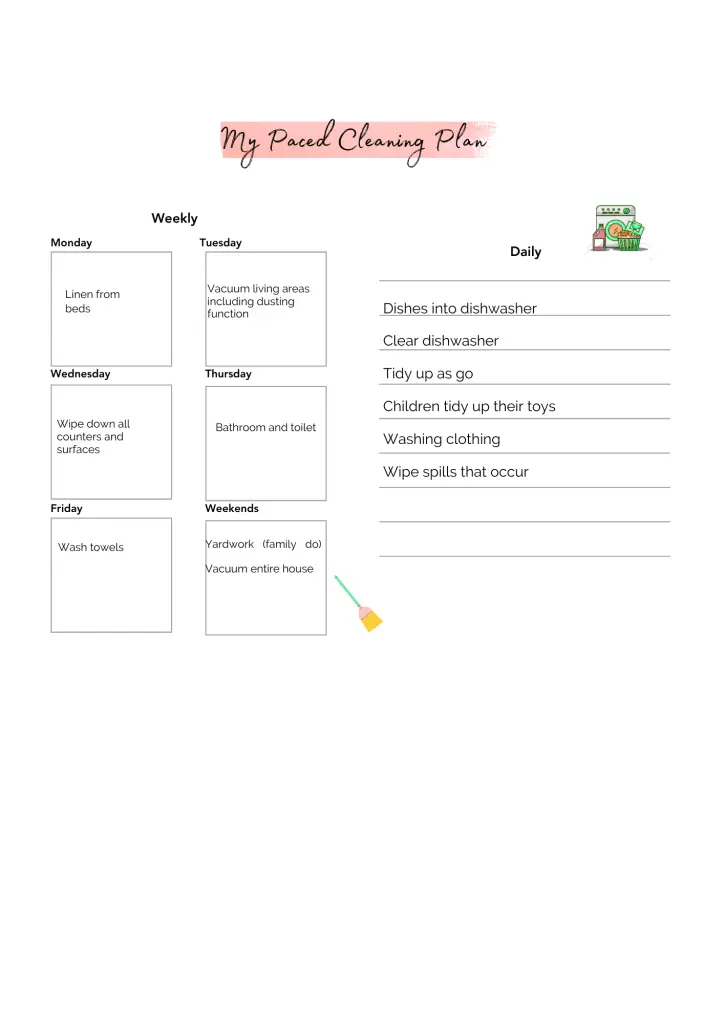
Make sure you find all the ways to make things easier too. I’ve found a stool for the washing basket when I’m hanging out the clothes is enormously helpful. For some reason the bending down and lifting up raises my heart rate to uncomfortable levels!
Again I could go on here, let me know if you would like a full post for cleaning tips.
These are four of my indispensable systems for staying organised with chronic illness. What are yours?
